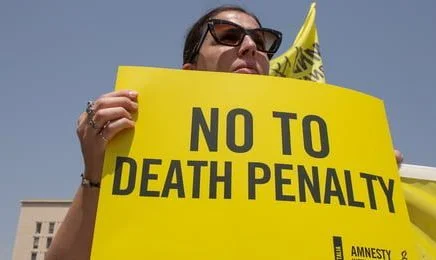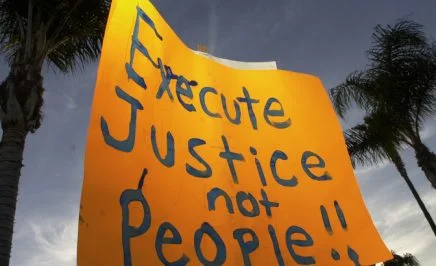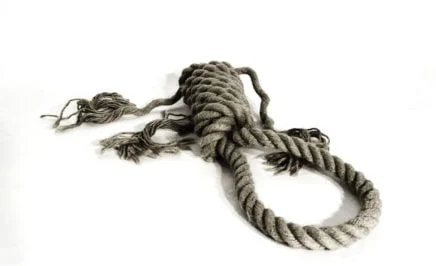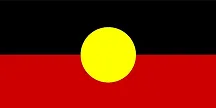While many countries have moved away from killing people in the name of justice and punishment by abolishing the death penalty, many still continue to have it in place. We must continue to challenge the injustice of the death penalty until every person on earth is safe from this intolerable practice.
Here are 4 actions you can take right now to defend the rights of those in need around the world:
Hoo Yew Wah
In 2005 at just 20 years old, Hoo Yew Wah was arrested in Malaysia due to drug possession and was immediately sentenced to the mandatory death penalty. Now, at 36 years old, he has remained on death row since 2011.
It is over 8 years since Hoo Yew Wah applied for a pardon to the Sultan of Johor State. To date, he has received no reply.
While on death row, Hoo Yew Wah has written about his childhood in a disadvantaged community; leaving school at 11 and later working as a street cook. He understands his past decisions were wrong.
“I have to accept responsibility for my past actions … My friends lived a luxurious lifestyle and I wanted the same”
Hoo Yew Wah’s life continues to remain in limbo. In July 2018, the Malaysian authorities announced a review of the country’s death penalty laws. This is a real chance for Hoo Yew Wah to be given a second chance. Over 100,000 letters, emails and signatures from all over the world have been sent in support for his application for clemency. Call on the Malaysian authorities to immediately quash their death sentences.
4 Journalists in Yemen
Akram, Abdelkhaleq, Hareth and Tawfiq were just doing their job when they were detained and charged with “spying” and “creating several websites on the internet and social media.”
They have been detained along with six other journalists for five years. They have also been held incommunicado at times and subjected to a range of human rights abuses, including enforced disappearance, solitary confinement, beatings and denial of access to health care.
As of July this year, Tawfiq al-Mansouri is being denied urgent health care despite suffering severe health conditions.
“Tawfiq al-Mansouri should never have been detained in the first place, let alone sentenced to death. The Huthis must immediately grant him access to the health care that he so urgently requires.”
Amnesty International’s Acting Deputy Director for the Middle East and North Africa
Over the next few weeks, we must pressure the Houthi authorities to release them and quash their death sentences. Please take action, we will hand over the signatures ahead of the verdict.
Ahmadreza Djalali
In 2016, Swedish-Iranian academic Ahmadreza, a specialist in emergency medicine, was on a regular trip to Iran when he was arrested.
He was tortured and his children were put on the line by interrogators if he did not ‘confess’ to being a ‘spy’ for Sweden and from there was arrested. In November 2020, Ahmadreza’s wife Vida was told that Ahmadreza’s execution would be carried out within a week. In response compassionate people from all around the world spoke out and called for the Iranian authorities to call off the execution.
While this has prevented it temporarily, Ahmadreza is still at risk of execution. Amnesty International’s research shows that, regardless of the Iranian authorities’ initial motivations for arbitrarily detaining Ahmadreza Djalali in April 2016, since at least late 2020, the situation transformed into one of hostage-taking when Asadollah Asadi’s trial in Belgium began.
Vida is calling for people to continue to speak out.
“Ahmadreza has always been devoted to helping others; now he is wasting away in prison for nothing. I ask Amnesty International activists around the world to help bring my husband back to his wife and children, and to the academic world.”
Sign the petition and call on the Iranian authorities to quash Ahmadreza’s death sentence and release him so he can be reunited with Vida and his children.
Sareh Sedighi-Hamadani
Arrested on the 27th of October 2021, Zahra Sedighi-Hamadani, known as Sareh was targeted for speaking out for LGBTQIA+ rights on social media and in a BBC documentary. She was crossing the border and seeking asylum in Turkey when she was arrested.
Sareh was then held in solitary confinement for 53 days where she was abused, insulted for her identity and appearance, and threatened with execution and the removal of custody of her children. As of now, the authorities have sentenced Sareh Sedighi-Hamadani to death for “corruption on earth.”
In Iran LGBTQIA+ individuals face violence, persecution and discimination and those non-conforming to gender are legally required to undergo gender reassignment surgery and sterlisation. The law also criminalises same- sex sexual conduct.
In a video Sareh shared with the Iranian Lesbian and Transgender Network, she spoke of her hope for the future. “I hope to achieve freedom … I hope the day will come when we can all live in freedom in our country.”
Brave people like Sareh stand up for LGBTQIA+ rights despite this discrimination. They shouldn’t face the death penalty for standing up for equality. Take action for Sareh’s freedom now.
Amnesty is calling for countries that still use the death penalty to immediately halt all executions, countries that have stopped executing people to permanently remove this punishment for all crimes, and for all death sentences to be commuted to prison sentences.
Learn more about Amnesty International Australia’s campaigns to end the death penalty and how you can help save lives today.







